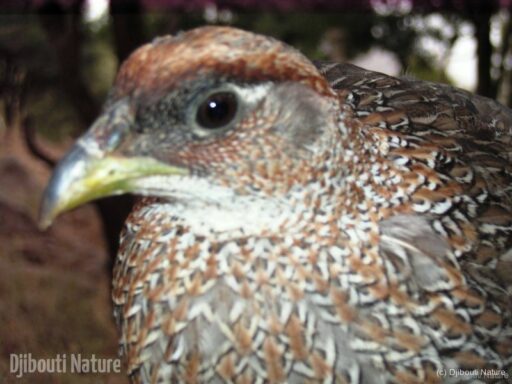
The Djibouti Francolin is a shy and elusive endemic gamebird classified as Critically Endangered species only known from two small important bird and biodiversity areas (Forêt du Day and Mabla) in Djibouti, which is severely fragmented and declining in both extent and quality, and within which the population is undergoing continuing decline. This means, if nothing is done, the species faces an extremely high risk of extinction in the immediate future (50% chance in ten years/three generations).
he critical issues of its survival appear to be the deterioration rate of its natural habitats, as evidenced by high mortality of the main woodland where it occurs. The reasons why its natural habitat is degenerating is not well understood but hypotheses have been suggested over the last decades.
These generally consist of a combination of factors such as: timber extraction for construction and firewood; over-grazing; and/or an apparent change in climate towards hotter and drier conditions which has affected the productivity of the entire ecosystem.




